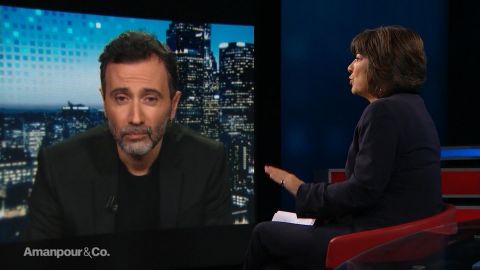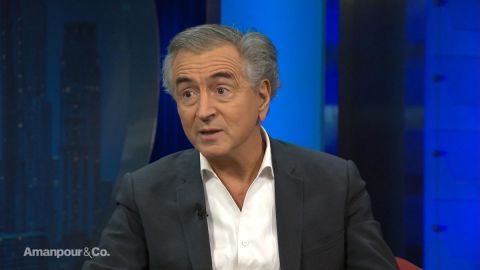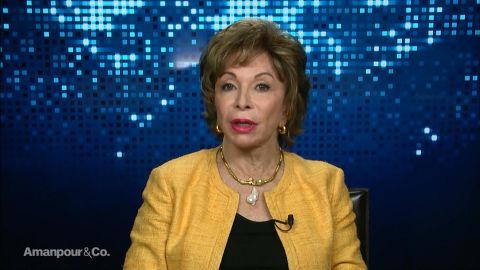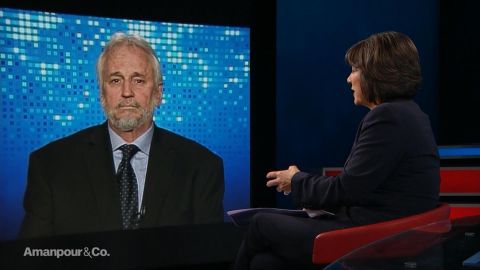Read Transcript EXPAND
AMANPOUR: You have been nominated for an Oscar for this remarkable film that you call “Of Fathers and Sons”. Basically, you get into an Al Qaeda type Al Nostra Jihadi family and they’re very powerful, important Jihadi family. How on earth did you manage to persuade them to let you film for two years without beheading you, without killing you, without being suspicious of you?
DERKI: Yes. Actually, I was undercover this whole period. Like I know the people in the ground. I used this access. Some of them that they were before my character, they become — one of them become the leader in Al Qaeda and he was my key to this — to the most of the society. And after we found the keys in (INAUDIBLE), introduced us to the father, and asked him to accepting making this film. And then from that father, with the family, I had to do all the thing like as a sympathizer with the Salafist Movement. And I was praying with them, doing all this.
AMANPOUR: So you had to pretend and demonstrate for a long, long period of time that you were a sympathizer as you say, that you believed in their Jihad, and that you were trying to do something positive for them.
DERKI: Yes, exactly. Like in a way that making propaganda about their power in the front line in a fight and how they win the enemy and the best education they give to their children.
AMANPOUR: What was it like trying to be undercover in this hugely sensitive situation for so long?
DERKI: It’s long. Like a long, long journey to do this film like two-and- a-half year and dangerous that they would figure out that I’m a (INAUDIBLE) for example or my purpose or who I work with or some of my chat or so many things that can show my background or what kind of film and who is my partners in this film. It’s not only dangerous from them because area was bombed also by American, by the regime, by the Russian, by different group of — different countries. And also that his work with exclusive staff. He fix a bomb car and he’s dismantling bomb car.
AMANPOUR: You’re talking about the main character, the father, right? Abu Osama.
DERKI: Yes. And the structure, he’s anti-protagonist.
AMANPOUR: Yes. Let’s just say quite clearly for our viewers. He was a leader of a Jihadist cell. He had a number of children, boys, that he pushed also to become young Jihadists. And I think that is the most incredible part of your film, the focus on the children and how the children were groomed to become Jihadi.
About This Episode EXPAND
Christiane Amanpour speaks with historian Miguel Tinker Salas and novelist Isabel Allende about the crisis in Venezuela; and Talal Derki about his film “Of Fathers and Sons.” Hari Sreenivasan speaks with philosopher Bernard-Henri Levy about America’s abdication of its traditional leadership role.
LEARN MORE



